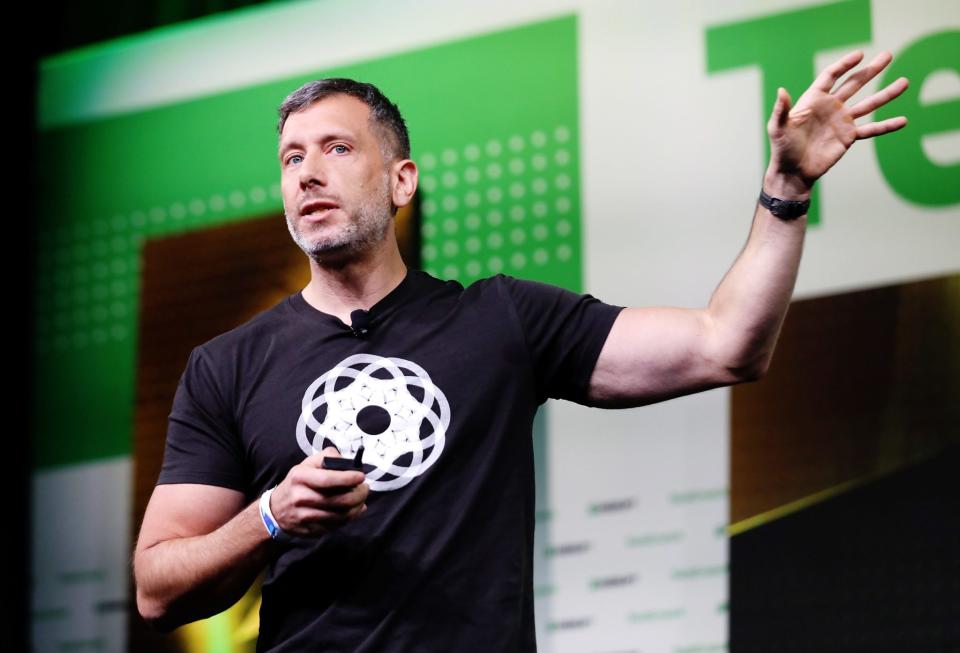Quantum computing isn’t magic—but could be the next big thing, say executives at the Montgomery Summit

Yesterday, I settled into a spongy white chair at the Montgomery Summit to listen to a panel about a subject I know absolutely nothing about—quantum computing.
My primary association with quantum computing is the 90s sci-fi show Quantum Leap. But here’s what quantum computing refers to, more or less: an emergent sector utilizing the laws of quantum mechanics to solve problems too elaborate for the computers we know. Taking it a step further, quantum mechanics itself is the science dealing with how light and matter behave at a subatomic level, beyond what humans can see.
I know, I know, why should you care? Well, this was a conference for investors. And, according to the quantum bulls who spoke at the event, the opportunities to invest in the technology, from startups to established companies, are increasing.
"It’s not the sexiest topic in the world, but it’s a $75 million sexy topic,” moderator Dr. Kristin Gilkes, EY Global Innovation Quantum Leader, joked, possibly referring to the U.S. Defense Department’s Quantum Transition Acceleration project.
I heard a couple different numbers throughout the panel about what the possible market opportunity for quantum computing might look like. The one that stuck with me: Michael Biercuk, CEO of Q-CTRL, quoted a Boston Consulting Group figure suggesting that the market for quantum computing by 2035 could be $1.3 trillion. Which naturally leads us to the question, how?
Gilkes, Biercuk, and Ray Harishankar, IBM Fellows at IBM Quantum Safe, ran the audience through a number of use cases for the technology, including DNA sequencing, pharmaceuticals, logistics, and IoT. There are also multiple verticals—there’s quantum computing, yes, but there’s also quantum sensing (which pertains to motion) and quantum advantage (the inflection point where a quantum algorithm is faster than a “classical” computer).
“There are a whole class of problems waiting to be solved when you have a reasonable quantum computer,” Harishankar told the audience.
The crux of the panel was this: After false-start startups and decades relegated to the ivory tower, these panelists believe quantum computing is ready to step into the limelight.
“The field was driven for many years by academics and national labs, and then the early industry investment came from organizations like IBM, but more recently we’ve seen a change,” said Biercuk onstage. “There was a wave of early quantum technology startups, and many of them have not panned out the way people have hoped. Frankly, that’s changed because it was a very simplistic view.” (In 2023, startups focused on quantum computing snagged almost $1.2 billion, a solid uptick compared to 2022, when the sector raised $800 million, according to Crunchbase data.)
If you, like me, are into history, this might sound a bit like something else—AI, which was long the province of academia and government. (AI research as we know it, for example, began in 1956 at Dartmouth.)
And, like AI, quantum anything will also have limitations in what it can do relative to expectations.
“Quantum computing isn’t magic pudding,” said Bierchuk.
Before this talk, I didn’t know the phrase “magic pudding,” and didn’t know anything about quantum computing. But both are memorable and seem to merit further investigation.
A poem…Out in the LinkedIn wild, I came across this fun poem posted by Maria Palma of Kindred Capital—but penned anonymously—about the current state of VC. My personal favorite lines: “What do VCs want?/Continue the current jaunt?/Or is 3x better than naught?/A lack of LP liquidity will soon start to haunt.”
See you tomorrow,
Allie Garfinkle
Twitter: @agarfinks
Email: alexandra.garfinkle@fortune.com
Submit a deal for the Term Sheet newsletter here.
Joe Abrams curated the deals section of today's newsletter.
This story was originally featured on Fortune.com

 Yahoo Finance
Yahoo Finance 